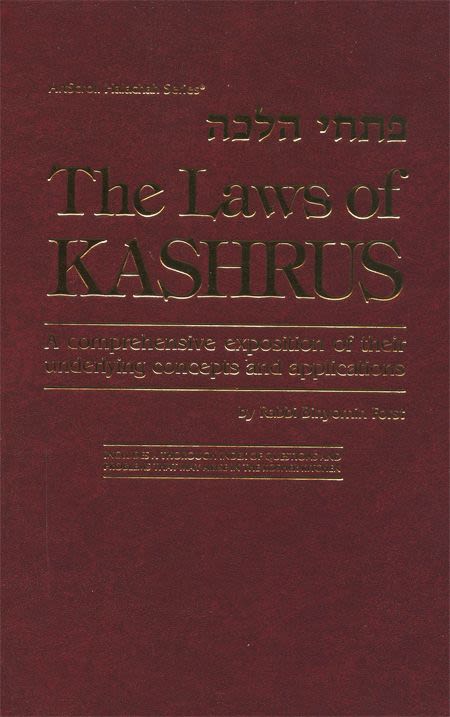
From Getting to Giving
As we grow and mature physically, we are expected to also grow emotionally and spiritually. Our job is to look beyond ourselves to the needs of others…

Life doesn’t happen to us. It happens for us. We are here in order to internalize what Hashem wants of us, which takes correcting and refining our beliefs, thoughts, speech, and actions. One of the most important goals in life is to transition from living for the purpose of “getting” or “taking” for ourselves (according to the ego or our animal soul) to living for the purpose of “giving” (according to our G-dly soul).
Babies and little children are naturally “takers” because they depend on their parents and caregivers to supply them with all their needs. This is the natural way. As we grow and mature physically, we are expected to also grow emotionally and spiritually. Our job is to look beyond ourselves to the needs of others. Two-year-olds have a hard time sharing. They fight over toys and care about their own needs. Since this is to be expected, we gently try to encourage them to play nicely.
In this day and age, with the focus being on the self and the accumulation of lots of things that remind us of our own wants and desires—things such as the iPhone, iPad, iPod, iWatch, and iTunes—-we are being bombarded with messages to focus on what we can “get” for ourselves. We are “for-getting” that the purpose of life is service to others and to become “givers”, which often means going outside our comfort zone and rethinking our priorities.
Giving of ourselves is far more important than the giving of material gifts. Being that we are naturally inclined to care more for ourselves than for others, children need to learn from their parents how to give of themselves. That is perhaps the most important character trait on which to focus. Abraham was immortalized because he was a man of kindness, expressed by his hospitality to others. Getting too much stuff makes us “forget” the meaning of family, of close connections, and of love. We can only love when we give to others. Giving creates the love. G-d creates the family we have for a purpose, and that  purpose is to make the effort to give in order to love the family that G-d chose for each of us. The more we invest time, effort, energy, and self-sacrifice to connect to our family, the more love we feel for them. If we stop giving to those who give to us, we stop loving. Sometimes giving simply means inclusion—-taking the time to include them in the little things, for it is the little things that really matter.
purpose is to make the effort to give in order to love the family that G-d chose for each of us. The more we invest time, effort, energy, and self-sacrifice to connect to our family, the more love we feel for them. If we stop giving to those who give to us, we stop loving. Sometimes giving simply means inclusion—-taking the time to include them in the little things, for it is the little things that really matter.
From the time of the Bar and Bat Mitzvah to the Chuppa (marriage canopy) we grow by intensifying our giving. The Torah’s directive in the Book of Genesis is that, “A man shall leave his father and his mother and shall cleave to his wife” (2:24). What does this really mean? Does “leave” mean “abandon”, and if it does, would not this interpretation conflict with the Fifth Commandment “to honor thy father and thy mother”? Because this generation has become used to impersonal relationships and communication through Facebook and texting, the fact that technology has afforded us more time has often served to intensify our preoccupation with distractions, careers, and material pursuits. Unfortunately, this is not the best use of time. Many who have not internalized the wisdom of the Torah have given little attention to those people in their lives who really matter.
So presuming that leaving one’s father and mother and cleaving to one’s wife does not mean “abandonment”, what does it mean? Our sages tell us that cleaving to one’s wife and becoming one flesh means that the couple unifies as one in their commitment to leave the old childhood relationship they had with parents and family. So instead of taking from their parents, the couple grows together in giving to them. The Torah is telling us to leave the old parent-child relationship behind with our childish and, at times, selfish inclinations in order to grow in maturity and in our focus upon giving, especially to involve those who are closest to us, thereby strengthening the extended familial bond.
Authentic giving involves thought, kind speech, and, most of all, action, that puts spirituality into the material, which is what we do when we perform mitzvot. When we take the time to call loved ones, to do for others, and to speak from the heart, we teach our children what love really means. Being Jewish in our hearts may sound nice, but it falls short because it does not lead to immortality, which can only be achieved when we take action to unite the physical with the spiritual. The bond that we create by fulfilling G-d’s intention to keep families strong and unified bears the test of time. When we forget to forgive, when we fail to transition from receiver to giver, we cut the ties that bind us together and weaken the foundation—the roots—that offer stability to future generations.
May we resolve to never forget to forgive, to give freely, to love, to honor traditions, and to cherish the important people in our lives so that the present and the past provide the glue to sustain a strong and connected future.











Tell us what you think!
Thank you for your comment!
It will be published after approval by the Editor.